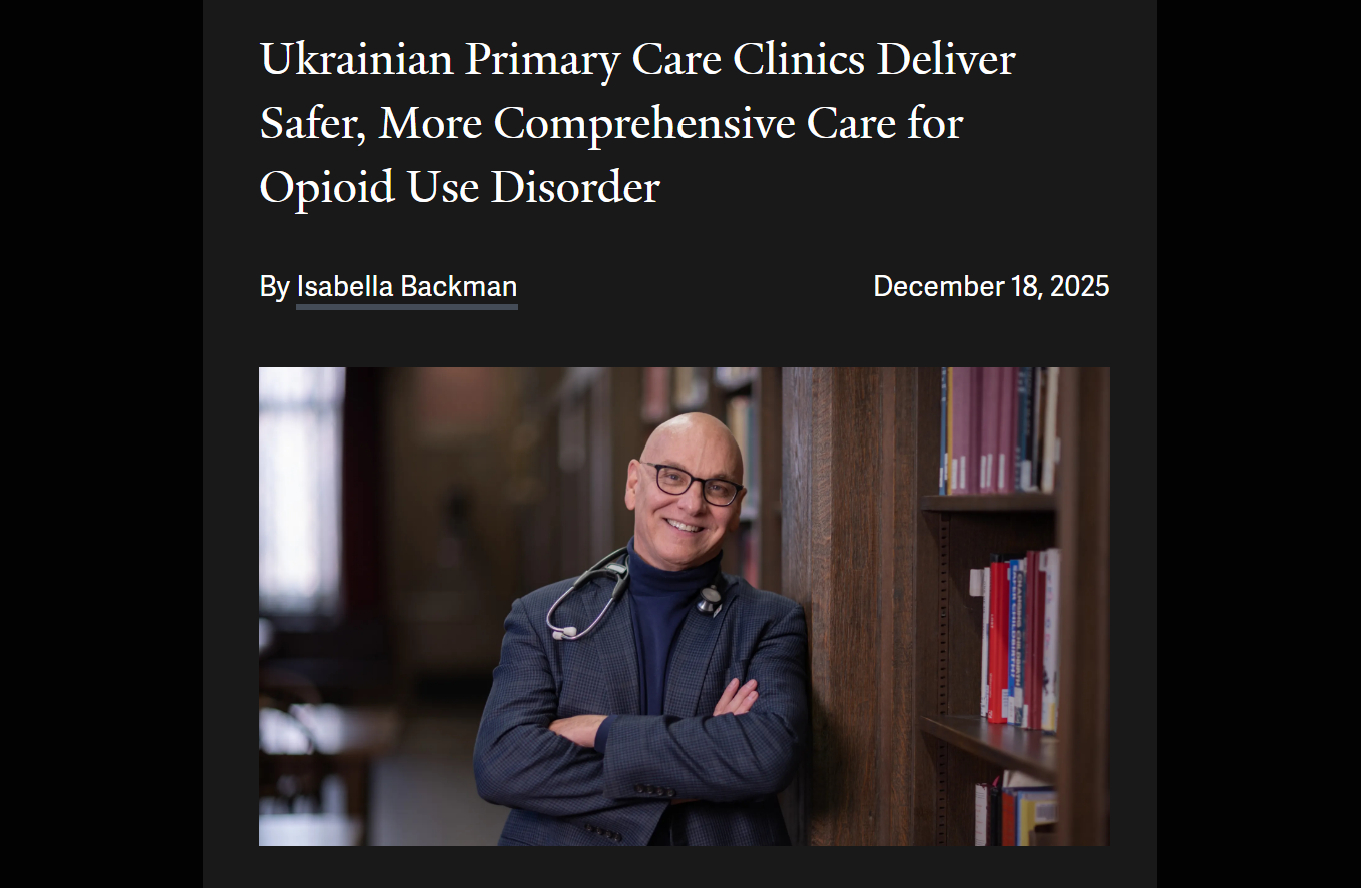filter_events

Yale School of Medicine (USA) has published a material dedicated to cooperation with our scientists and the results of the project "Integrating Addiction Treatment and HIV Services into Primary Care Clinics in Ukraine".

The International AIDS Society (IAS) has announced the opening of registration for the 26th International AIDS Conference, AIDS 2026, taking place from 26–31 July 2026 in Rio de Janeiro, Brazil, and virtually. The conference will bring together scientists, policymakers, advocates and communities to drive innovative, community-centered solutions amid a global HIV funding crisis.

Tuberculosis (TB) remains one of the world’s deadliest infectious killers, claiming over 1.2 million lives and affecting an estimated 10.7 million people last year, according to the WHO Global Tuberculosis Report 2025, released on 12 November 2025. Despite measurable progress in diagnosis, treatment and innovation, persistent challenges in funding and equitable access to care threaten to reverse hard-won gains in the global fight against TB.

The Ministry of Health of Ukraine, together with the World Health Organization, has developed a bilingual glossary of gender equality, human rights, and health equity terms — a convenient reference tool for everyone working or communicating on these topics.

The 13th International AIDS Society Conference on HIV Science (IAS 2025), held in Kigali, Rwanda, was characterized by a profound paradox. On one side, the scientific community unveiled groundbreaking tools—especially long-acting prevention and treatment options—with the potential to drastically change the trajectory of the HIV epidemic. On the other side, these advances were overshadowed by the deepest financial and political crisis in decades, threatening to wipe out years of progress.

At the IAS 2025 conference, the Ukrainian Institute on Public Health Policy, in collaboration with partners from Yale University and other academic institutions, presented findings from a study exploring the sexual health and perceptions of “time left” among older people living with HIV (OPWH) in Ukraine.

On June 19, 2025, the second masterclass was held within the framework of the project “Simplified HCV integrated management (SHIM) model in methadone clinics in Ukraine”

The 23rd European Meeting on HIV & Hepatitis – Treatment Strategies & Antiviral Drug Resistance took place on 4–6 June 2025 in Barcelona, Spain.
